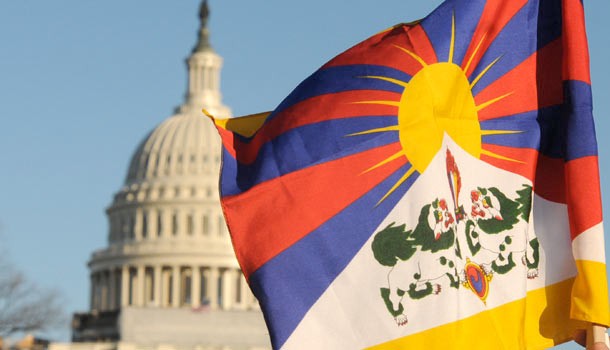
(TibetanReview.net, Dec11, 2018) – Crediting President Donald Trump for the waning impact of human rights issues on Sino-US ties since he assumed office, China’s official media has, on Dec 10, accused the US Congress of still paying close attention to it and of constantly raking it up, referring to the Reciprocal access to Tibet bill that is now on course to become law. The bill shows that America is again trying to interfere in China’s internal affairs on the pretext of so-called human rights issues, and influence other countries’ domestic politics through legislation, said a commentary posted on the official globaltimes.cn, which is run by the mouthpiece People’s Daily of the country’s sole ruling power, the Communist Party of China.
The commentary by Ling Shengli, secretary-general of the International Security Study Center at China Foreign Affairs University, expresses concern that the Senate Foreign Relations Committee had unanimously approved the Reciprocal Access to Tibet Act on Nov 28 and the bill now needs to be passed by the full Senate and signed by President Donald Trump before becoming a law.
The commentary notes that the bill would require the US State Department to allow Chinese diplomats and others to visit some parts of the US in accordance with the extent China allows US diplomats and others to visit certain areas, “including Tibet”.
The commentary cites the bill as saying: “The Secretary of State shall submit to the appropriate congressional committees … a report that includes an assessment of the level of access Chinese authorities granted diplomats and other officials, journalists, and tourists from the United States to Tibetan areas” and “a list of Chinese officials who were substantially involved in the formulation or execution of policies to restrict access of United States diplomats and other officials, journalists, and citizens of the United States to Tibetan areas”.
Noting that the idea behind it is that if China continues to restrict Americans from entering Tibet, Chinese officials on the list will no longer be able to enter the US, the commentary calls it “the typical US way of meddling in the internal affairs of other countries through legislation”.
The commentary warned that such continued US pressure will lead to China losing trust in Washington, adding “If the US really wants to resolve the trade conflict with China, it should not stir up more troubles.” Apparently it views resolving the trade dispute as more in US interest than China’s, which, on the face of it, does not at wall seem to be the case.





